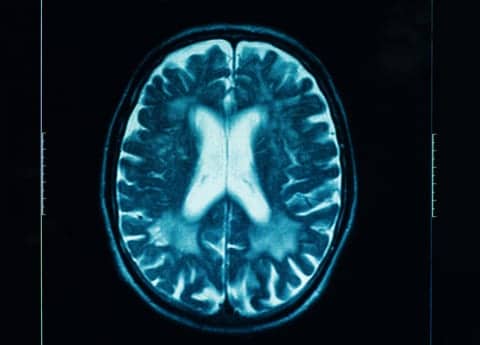Traumatic brain injuries (TBI) that cause toxic proteins to build up in the brain inhibit the body’s ability to clear out damaged proteins. This accumulation begins the process for the development of neurodegenerative disorders increasingly seen in the aging population.
A new study based at the University of Rochester Medical Center, Rochester, NY, and published in the Journal of Neruoscience details the effects TBI has on interfering with the ability of the brain to rid itself of waste products that eventually can become harmful. The inability to remove toxins and other debris sets the stage for the onset of conditions such as Alzheimer’s disease and chronic traumatic encephalopathy.
“We know that traumatic brain injury early in life is a risk factor for the early development of dementia in the decades that follow,” says Maiken Nedergaard, MD, DMSc, co-director of the University of Rochester Center for Translational Neuromedicine and the article’s senior author. “This study shows that these injuries set into motion a cascading series of events that impair the brain’s ability to clear waste, allowing proteins like tau to spread throughout the brain and eventually reach toxic levels.”
The body’s normal waste removal systems does not service the brain, which is closed off from the rest of the body by a system of molecular gateways known as the blood-brain barrier. This barrier exerts tight control over materials that are allowed to exit and enter the brain. If timely waste removal is inhibited in the brain, toxins accumulate.
The waste removal system that services the brain is called the glymphatic system. Recent studies have shown that the glymphatic system is more active during sleep, which is thought to explain why sleep refreshes the mind. The function of the glymphatic system declines as an individual ages.
According to a media release from University of Rochester, Nedergaard and her colleagues showed that mice, whose brains are remarkably similar to humans, possess what amounts to a plumbing system that piggybacks on blood vessels to pump cerebral spinal fluid, the fluid surrounding the brain, through brain tissue, flushing away the waste from the spaces between the brain’s cells.
“The failure of the glymphatic system may be one of the reasons that the aging brain is so vulnerable to diseases like Alzheimer’s,” says Jeffrey Iliff, PhD, co-author of the study and an assistant professor at Oregon Health and Science University. “It’s striking that the same changes that we see in the aging brain are mirrored in the young brain after traumatic brain injury. It suggests that these events may be the common link to neurodegeneration, between what happens in the elderly and what happens after brain trauma.”
[Source: University of Rochester Medical Center]





